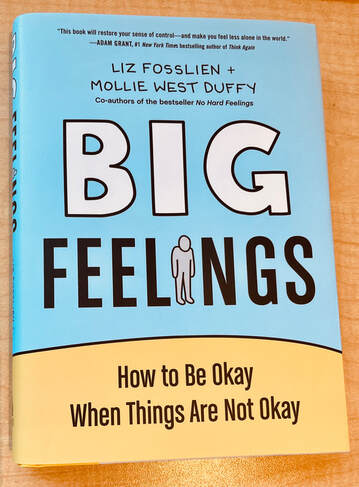 I work with and am connected to many people through my community and network. It keeps me energized and engaged in my work – to truly know so many people, and to share in their lives, work, and careers. Over the past while, several people have been going through job changes – some chosen, some not – and these often lead to reflections on goals and priorities as well as lessons about seeking new roles and work.
0 Comments
 Is this familiar? You're trying to remember something - it's on the tip of your tongue but you just can't get it. You try hard to think of it, but get even more frustrated, and the answer seems even more elusive. Then, as soon as you think about something else, the answer comes to you. Or this: you're working on something and it's going really well. Before you know it, an hour or two has passed by and you didn't notice. You don't recall exactly what you did during that time, but you can see what you accomplished, and it feels brilliant. Yep, me too.  I chose this book, Big Feelings, by Liz Fosslien and Mollie West Duffy, based on the social media hype and discussion about it. Many will be familiar with the illustrations and comics by this pair of workplace and development consultants. This is their second book (the first was No Hard Feelings from 2019, which looks at effectively expressing and controlling emotions at work - still in my to-read pile). This latest book looks at seven difficult feelings that can emerge at work and in life, and is especially relevant in the time of COVID (when the dominant feeling was languishing). Published in early 2022 and subtitled, "How to be okay with things are not okay", the book promised to be immediately impactful. And to some extent it was, but ultimately fell short of my expectations.  As leaders, we have to pay attention to each of our team members and learn to hear what they’re saying – even (or perhaps especially) when they are not saying much. If we’re doing a good job of supporting and engaging on an ongoing basis, we’ll get to know our team members’ communication styles and hear about what’s going on for them – at work, at home, in their lives – and can incorporate this into our work with them. When someone who is usually enthusiastic starts to be listless or quiet, we are responsible for exploring that with them.  The Gifts of Imperfection is from Brené Brown – author, researcher, and personal growth magnate (and TED talk star) – and describes some of her own personal growth and reflections on self-acceptance, past guideposts of authenticity, resilience, creativity (among others). These encourage and enable self-reflection by the reader along a similar path to recognize and celebrate (not just accept) one’s own vulnerability and whole self. |
Who is Robyn?
My career as a research project manager is rewarding, dynamic, challenging, and fun. I'm looking forward to sharing my knowledge and experience in communication, organization, and common sense approaches in research management and leadership, and to enabling others to learn and grow in this exciting career. Categories
All
Archives
April 2024
|


 RSS Feed
RSS Feed
